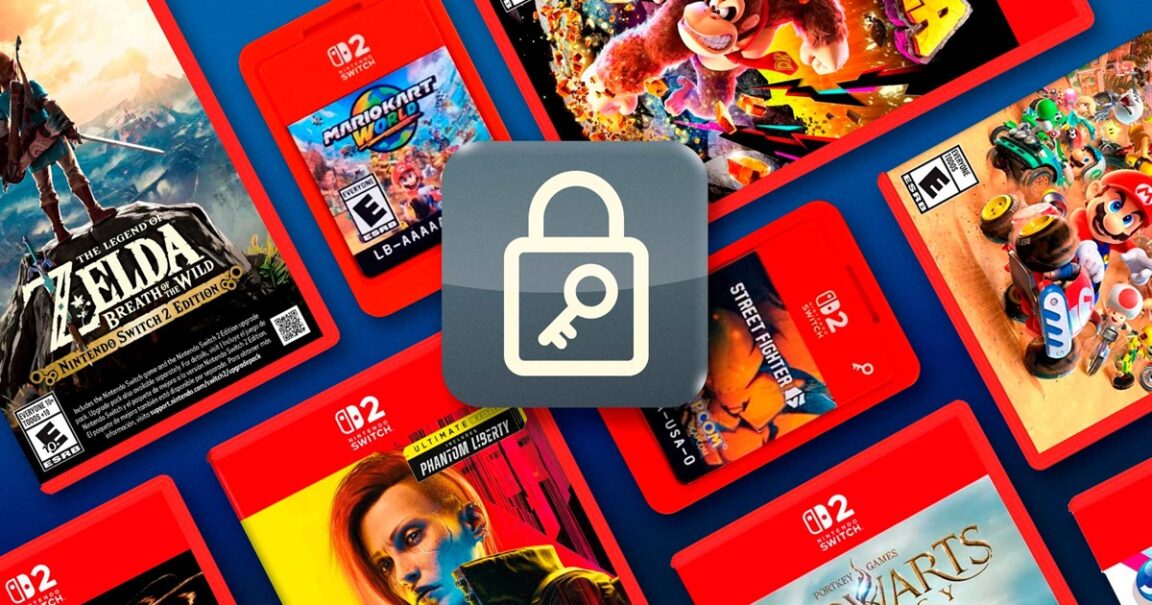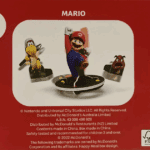The Switch 2’s controversial new format is making physical game buyers feel like mugs. And now it’s spreading to Nintendo’s own titles.
Here’s a fun thought experiment: imagine walking into JB Hi-Fi, picking up a shiny new Blu-ray, getting home, and discovering the disc is just a code to download the movie. The plastic case? Still there. The disc? Present and correct. The actual movie? On a server somewhere, waiting for you to sacrifice 40GB of your internet cap to retrieve it.
You’d feel conned, wouldn’t you?
Welcome to Nintendo’s Game Key Cards.
The Great Physical Media Bamboozle
Since the Switch 2 launched, Nintendo has introduced “Game Key Cards” – cartridges that contain essentially nothing but a download key. You slot them into your console, they trigger a download, and even after that download completes, you need to keep the card inserted to play.
It’s the worst of both worlds. You get the inconvenience of physical media (bulky boxes, cartridge management, needing to swap cards) combined with all the downsides of digital (massive downloads, server dependency, storage consumption). But none of the benefits of either.
Can’t play without internet on first launch. Can’t preserve the game when Nintendo inevitably shuts down the servers. Can’t even enjoy that instant gratification of slot-and-play that made cartridges superior to discs in the first place.
Nintendo’s Doug Bowser has defended the cards as necessary to support third-party developers bringing “deeper and larger, more immersive content” to the Switch 2. Translation: Nintendo’s only offering expensive 64GB cartridges to publishers, so everyone’s taking the cheaper option.
When Even Nintendo Breaks Its Own Rules
Here’s where it gets interesting. Nintendo initially promised that its own first-party games wouldn’t use Game Key Cards. Mario Kart World and Donkey Kong Bananza both came on proper cartridges.
Then came the surprises.
Pokémon Pokopia, launching March 5, 2026, will be the first Nintendo-published game released as a Game Key Card. The kicker? It’s only a 10GB game. Meanwhile, Mario Kart World weighs in at 20-25GB and shipped on a full cartridge.
The mental gymnastics required to justify this would earn a perfect 10 from the Olympic judges.
Before Pokopia, fans were already caught off guard by several high-profile releases. Ubisoft’s Star Wars Outlaws arrived as a Game Key Card, which surprised nobody familiar with Ubisoft’s form. But the reasoning was actually legitimate for once.
According to Ubisoft’s Rob Bantin, the Snowdrop engine “relies heavily on disk streaming for its open world environments,” and Switch 2 cartridges “simply didn’t give the performance we needed.” The game runs from internal storage or microSD Express cards because the cartridges are too slow.
Fair enough. Performance matters.
But that excuse doesn’t hold water for a 10GB Pokémon farming sim.
The Preservation Nightmare
Japan’s National Diet Library, which has archived over 9,600 video games for preservation, has confirmed it won’t accept Game Key Cards. Their policy: “only physical media that contains the content itself” qualifies for preservation.
Think about that. One of the world’s premier game preservation institutions has looked at Nintendo’s solution and said, “No thanks, this doesn’t count.”
Stephen Kick, CEO of Nightdive Studios (specialists in game preservation and remasters), called it “a little disheartening,” noting “you would hope that a company that big, that has such a storied history, would take preservation a little more seriously.”
The Real Winners Here
According to Japanese consultancy firm Kyos Inc, publishers are “thanking” Nintendo for Game Key Cards as they help offset rising development costs.
Of course they are. Lower manufacturing costs, no inventory risk, and they can delist games whenever convenient. It’s a publisher’s dream and a consumer’s nightmare dressed up as innovation.
Meanwhile, CD Projekt Red quietly showed everyone how it should be done. Cyberpunk 2077: Ultimate Edition shipped on a full 64GB cartridge with everything included. Funny how they found a way to make it work when everyone else claimed it was impossible.
What This Means for You
If you’re buying Switch 2 games physically, check the box carefully. That white bar on the bottom? Game Key Card. That means you’re paying retail prices for what’s essentially a plasticky download voucher that you can’t lose.
The promise of physical media was permanence. Own it, play it forever, trade it, lend it, keep it. Game Key Cards break that promise while still charging you for shelf space.
And now that Nintendo’s crossed the Rubicon with Pokopia, expect more first-party titles to follow. The justifications will vary. The result will be the same: you’ll be paying for boxes while doing the storage company’s job on your own microSD card.
It’s not illegal. It’s not even particularly surprising in 2025. But it is, without question, bad marketing because the people who buy physical games are precisely the customers who care most about actually owning what they buy.
And they’re not buying this crap.





